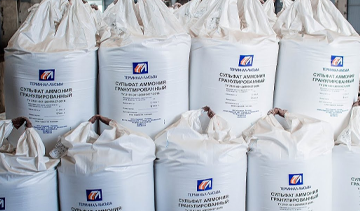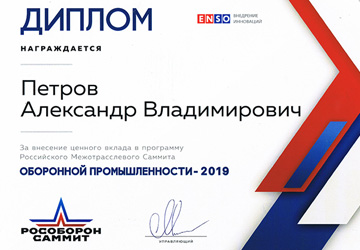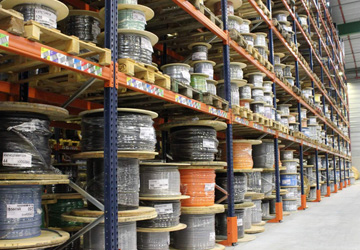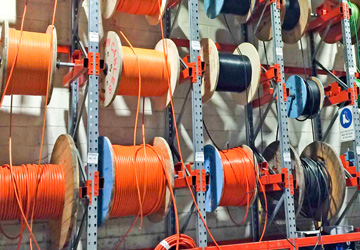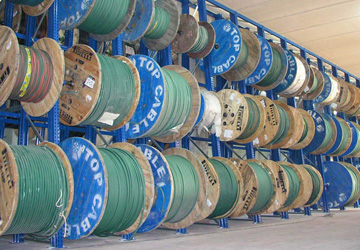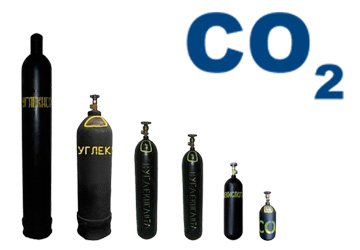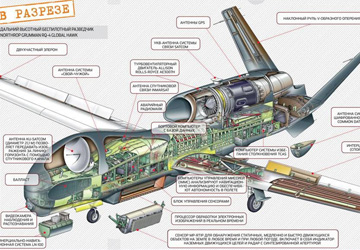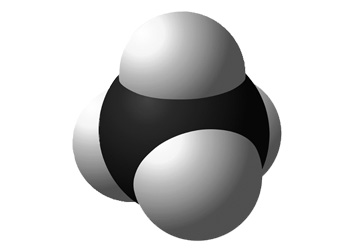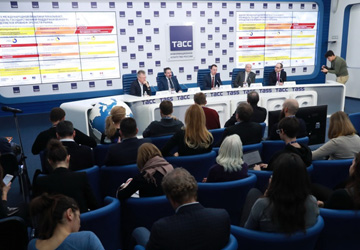The Internet is our main source of secondary data.
Thanks to the work of millions of people around the world, we can accelerate the collection of the necessary information.
Search engines make it much easier to find the information you need.
As you know, the materials they find are often:
- not always relevant to the query, as they have semantic barriers [different people assign different meanings to the same characters]
- contain both factual and estimated data,
- differ in commodity boundaries,
- refer to different time periods,
- written in different languages,
- voluminous,
- contradictory,
- incomplete.
All these nuances can make it difficult to find the information you are looking for.
To overcome these difficulties, we use:
- terms and synonyms of the subject of research,
- query language and advanced search of search engines,
- associative search,
- access to specialized paid resources,
- manual search in resources not indexed by search engines,
- native speakers to search in foreign languages,
We also combine it with other methods of collecting, processing and rechecking information.
Using the Internet, we compare ourselves with a sculptor - we just cut off the excess:)
In order to use the Internet effectively, we first of all try to understand the customer's task and each other's capabilities.
Professional web search
- home
- About
- Research methods
- Sources of secondary information
- Professional web search
Feedback
company's news
Formic acid and formate market research
Study of the global and Russian markets of additive packages
Research of the market of mining dump trucks and loaders
Market research of ammonium sulfate and complex mineral fertilizers
Work on the report "Market research of ammonium sulfate and complex mineral fertilizers" has been completed.
Research of the market of forging and pressing equipment
Study of the Russian coated paper market
Work on the report "Study of the Russian coated paper market" has been completed.
Research of the Russian markets of toluene and vinyl acetate
Work on the report "Research of the Russian markets of toluene and vinyl acetate" has been completed.
Assessment of customer satisfaction and brand awareness of electrical products
Work on the report "Assessment of customer satisfaction and brand awareness of electrical products" has been completed.
Study of the Russian market of electrocast refractories and raw materials
Work on the report "Study of the Russian market of electrocast refractories and raw materials" has been completed.
Selection of suppliers of tri-n-hexylaluminum in friendly countries that have not imposed sanctions
Work on the report "Selection of suppliers of tri-n-hexylaluminum in friendly countries that have not imposed sanctions" has been completed.
Study of the Russian and global market of sorbic acid and potassium sorbate
Work on the report "Study of the Russian and global market of sorbic acid and potassium sorbate" has been completed.
Research of the Russian optical fiber market in 2022
Work on the report "Research of the Russian optical fiber market in 2022" has been completed.
Bioprotein Market Research (Methane Fermented Feed Protein)
Study of the Russian energy market, coniferous timber and waste paper markets
Work on the report "Study of the Russian energy market, coniferous timber and waste paper markets" has been completed.
Research of the Uzbek market of rolled metal products and grinding balls
Work on the report "Research of the Uzbek market of rolled metal products and grinding balls" has been completed.
Research of the global and Russian market of tank containers for liquid hydrogen
Coated paper price monitoring
Work on the report "Coated paper price monitoring" has been completed.
Analysis of Brazilian commodity deliveries to Russia
Work on the report "Analysis of Brazilian commodity deliveries to Russia" has been completed.
Research of the single-sided coated paperboard market in the Russian Federation
Marketing research of the naphthenic oils market
Examination of the market price of a complex of equipment for the acceptance and processing of grapes with a capacity of 900 tons per day
Examination of the market price of a complex of equipment for the acceptance and processing of grapes with a capacity of 900 tons per day
Study of the Russian Market of Pure Vanadium Pentoxide
Assessment of the capacity of the Russian market of brazed heat exchangers
Supplier selection of tertiary dodecylmercaptan, ethylenediamine, N-butyl chloride, chromium 2-ethylhexanoate...
Suppliers of tertiary dodecylmercaptan, ethylenediamine, N-butyl chloride, chromium 2-ethylhexanoate have been selected...
Assessment of the potential of import substitution of coal for hookahs
Marketing research of the glass medical container market
Research of the Russian market of fuel and hookah charcoal briquettes
Study of the Russian and world market conditions for urea-ammonia mixture
Uzbekistan market research on mill lining and crusher armor
The work on the report "Uzbekistan market research on mill lining and crusher armor" has been completed.
Competitor analysis of psychological support services
Study of the conjuncture of freight traffic from Turkey to Russia
Marketing research of the market of electric motors, frequency converters and geared motors
Search for manufacturers and suppliers of polylactide fibers in Russia or in non-sanctioned (friendly) countries
Search for manufacturers and suppliers of polylactide fibers in Russia or non-sanctioned (friendly) countries
Marketing research of the Russian and global MRI market
Search for manufacturers and suppliers of the required products in Russia or in non-sanctioned (friendly) countries
In the face of possible restrictions on the supply of used reagents, Sibur is taking anti-risk measures...
Analysis of the Russian white oils market
Work on the report "Analysis of the Russian white oils market" has been completed.
API in the TOP-10 companies in the category "Consulting in the field of marketing and PR"
Research of the Russian market of ion-exchange resins
Research of the conjuncture of the Russian market of metal and non-metal lockers
The key task of the study was to assess the capacity of the locker market, including in terms of material (metal, chipboard, MDF, plastic/HPL composite)
Assessment of the import substitution potential of printed circuits in Russia
Mining equipment market research
Investigation of the conjuncture of the Russian market of compounds of metals and elements
Marketing research of russian pumps production in 2021
Estimated volume of plywood production in Russia
Market research DGU / DES / GPU and engines for DGU and GPU with a power of 800 kW
Research of the Russian market of organic and organomineral fertilizers
Research of the conjuncture of the Russian and world market of MMA and PMMA
Completed a study of the Russian and world market conditions for MMA and PMMA
Study of the Russian Market of Reagents for Dust Suppression and Antifreeze
Study of the Russian market of reagents for dust suppression and antifreeze has been completed
Research of the russian market of ammonium fluoride, sodium fluoride, and potassium fluoride
The work on the report "Research of the russian market of ammonium fluoride, sodium fluoride, and potassium fluoride"
State of the coated paper market in Kazakhstan and Uzbekistan, 2020
Report on the state of the coated paper market in the Russian Federation for 2020 and forecast for 2021
Marketing research of sewage pumping stations
Research of the Russian market conditions MHUK
Market research of abrasive grain (electrocorundum)
Market research of the glass medical containers
Research of the Russian market for tableware made of opal glass
Plans for changes in power generation capacities in Russia
Research of the Russian Market of Solid Caustic Soda
Formate market research (with a focus on sodium formate)
Market research for gas piston engines (power range 140-1000 kW)
Research of the Russian market of manufacturers of sleeves assemblies
Market Research for Cryogenic Temperature Testing
Mining equipment market research
Study of the situation in the Russian carbon dioxide market
API in the TOP-10 companies in the category "Consulting in the field of marketing and PR"
Market research for hollow metal structures
Battery market research in selected countries
Investigation of the conjuncture of the Russian market of ortho-phosphoric acid
Study of the conjuncture of the Russian market of PTFE products
Skif-M company dossier
Research of the Russian Market of Reciprocating Compressors
Research of the conjuncture of the Russian market of medical equipment
Marketing research of the Russian market of supercapacitors
Assessment of the prospects and profitability of the agreed zones and the development of proposals for the creation of new ones within the sports and cultural complex
Research of the Russian market of emulsion PVC
Market research of liquid pyrolysis products fraction
Identification of investment projects for the production of plywood
Selection of partners in Russia for Japanese companies
Research of the conjuncture of the Russian market of frequency converters for individual segments
Market research of lithium batteries in Russia
Marketing research of the market conditions for glass insulators for power transmission lines
Research of the conjuncture of the Russian market of stamped products
Research of the Russian market of oversized tires and oversized tire services
Marketing research of the conjuncture of the Russian market of caterpillar transporters
We are working
Research of the Russian market of equipment for the mining industry
Marketing research of the metal-cutting tool market for 2019
Marketing research of the market of caustic and chlorine-containing products
Research of the Russian market of caustic soda
Industrial Information Agency in TOP-5
Marketing research of the containerboard market
Marketing research of the hydrogen market in the Russian Federation
Marketing research of business opportunities for Swiss suppliers in the Russian market of oil and gas engineering
Marketing research of the wireless sensors market
Marketing research of the chlorine market in Russia and the CIS
Russian Defense Industry Summit
Marketing research of the rosin ester market
Overview of franchising in Russia
Market analysis of high-viscosity white technical oils, specialty isoparaffin oils and edible paraffins
Market Analysis for High Viscosity White Industrial Oils, Specialty Isoparaffin Oils and Edible Paraffins
Accreditation from the Russian Export Center
Analysis of the Russian metalworking equipment market
Work on the report "Analysis of the Russian metalworking equipment market" has been completed.
Identification of promising types of cable products from foreign manufacturers
Identification of promising types of cable products from foreign manufacturers that are in demand on the Russian market
Identification of promising types of cable products from foreign manufacturers that are in demand on the Russian market
Analysis of potential directions of development of the designed gas-chemical complex
Marketing research of the diesel engine market 110-550 hp
Rating of the 200 largest construction companies in the oil and gas sector
Rating of the 200 largest construction companies in the oil and gas sector
Marketing research of the ferrous metallurgy market
Marketing research of the market of diesel engines up to 30 kW and equipment based on them
Marketing research of the market of automatic fire extinguishing systems
Report on the state of the coated paper market in the Russian Federation for 2018 and forecast for 2019
Assessment of brand awareness and customer loyalty in the Russian coated paper market
Marketing research of the signaling market
Marketing research of the industrial market of the Russian Federation and the market of large offices
Search for distributors in Belarus
API in the rating of RA Expert
Analysis and development prospects of the Russian component base: axial piston, gear hydraulic pumps and motors; hydrodistributors
Marketing research of the diesel, gas-piston, gas-diesel engines market
Marketing research gas piston engines
Analysis and prospects for the development of the Russian component base: axial-piston, gear hydraulic pumps and motors; directional control valves
Market research of feed phosphates in Russia and CIS countries
Study of the feed phosphate market in Russia and CIS countries
Analysis of imports of carbide metal-cutting tools for 2018 in the Russian Federation
Analysis of imports of carbide metal-cutting tools in Russia in 2018
Marketing research: Rationale for investment in the construction of an LNG plant
Marketing research of the Russian fiber market for 2018
Marketing research of the Russian fiber market for 2018
Marketing research of the market of automatic fire extinguishing systems
Marketing research to assess the prospects and sales potential of wood-fiber boards on a phenol-free binder.
Marketing research of the potassium nitrate market
Potassium nitrate market research
Accreditation by ROSNEFT
Analysis of deliveries of foreign-made tractors of the studied range to the Russian market from non-CIS countries and CIS countries
Marketing research of vegetable oil market in Russia and Ukraine
Marketing research of the polyethylene market
Assessment of the needs of the FEFD market in liquid nitrogen and liquid oxygen
Assessment of the market needs of the Far Eastern Federal District in liquid nitrogen and liquid oxygen
Marketing research of the arugula market
Marketing research of the market of electrical components and power equipment
Marketing research of the glass fiber braided wire market
Monitoring paper prices and their changes
Preparation of the marketing part of the feasibility study of a plant for the production of high-precision steel castings
Market research of the well filters market for the oil and gas industry
Marketing research of the market of wires: extra-flexible and with plunger insulation
Marketing research of the equipment market for oil and gas production
Marketing research of the electricity meters market
Marketing research: pump production volume in 2017
Marketing research: organization of production of industrial paint and varnish materials in Kazakhstan
Finding suppliers: Raised floor based on calcium sulfate
Market Research: Coated Paper Market Size and Forecast
Assessing brand awareness and customer loyalty
Marketing research: import of electric motors to Kazakhstan
Research of the Russian market of aluminum composite panels
Research of the Russian market of products made of glass, aluminum profiles and alucobond
Market research for glass, aluminum profile and alucobond products
Marketing research of the lubricants market in the oil and gas industry
Marketing research: import and export of RF fiber optic cable in 2014-2018
Research of the Russian market of used petroleum oils
Marketing research of the secondary polypropylene market
Market research for hydrocarbon gases
Results of the statutory audit
Marketing research of the glass processing equipment market
Marketing research of the market of isobutane, propellant in the Russian Federation
Marketing research of the market of diesel generator sets (DGU) and gas piston units (GPU)
Overview of the market of aluminum hydroxides and oxides of non-metallurgical grades
Report review
Updating the study in 8 industries
Marketing research of the market of replicated fiberglass products
Marketing research of the metal-cutting tool market for 2017
Marketing research of the printing equipment market
Marketing research of the Russian market of frequency converters
Marketing research of the car service market
Marketing research of the crushed stone market of Kazakhstan
Marketing research of the Russian-made metalworking tool market
Marketing research of the Russian MDI market
Glyphosate and 2,4 D-acid production technology licensors
Marketing research of the market of 2,4 D-acid and glyphosate in the Russian Federation.
Marketing research of the market for 4 types of equipment
Development of a feasibility study for the modernization of the production of liquefied hydrocarbon gases (LPG) (propane, butane, SPBT, ethane) for the Russian and European markets.
Overview of chicken manure processing technologies
Research of the Kazakhstan market of lining of crushers and grinding equipment
Offer of foreign-made metalworking tools
Research of the Russian market of molybdenum-containing granules
Research of the Russian market of explosion-proof cable glands
Marketing research of the woodworking equipment market
Research of the industrial cleaning market in the Moscow region
Research of the Russian market of testing services and laboratory services
Database of potential customers among enterprises with technological operations for stamping or drawing
Study of pipeline valves and actuators
Conjuncture of supply of foreign-made products on the Russian market of pipeline valves and actuators
The market of cleaning products for industrial use
Industrial Cleaning Market Research
Database of participants in the Russian ecosystem of innovations, technologies and startups.
Competitor analysis: Houghton and Quaker Chemicals.
Market of high alumina products
Research of the Russian market of high alumina products
Marketing research of the furniture and components market for 2016
Analysis of prices for motor oils in various distribution channels
Analysis of prices for motor oils in various distribution channels (wholesale, retail, interner stores, service stations)
Study of the Russian market of refractories
Research on the Russian refractory market
Marketing research of the traffic control market conditions
Analysis of production volumes of pumps, disinfection/decontamination plants
Marketing research of the food market in the Russian Federation
Monitoring the state of development of a competitor - Trianon.
Study of the Russian carbon dioxide market
Research on the Russian carbon dioxide market
Study of brand awareness and assessment of loyalty in the market of electrical products
Studying brand awareness and evaluating loyalty in the electrical products market
Research of the Russian market of turning parts
Research on the Russian market for turning parts
Study of the Russian carbon dioxide market
Research on the Russian carbon dioxide market
UAV research
Research unmanned aerial vehicle market
API in the TOP-10 companies in the category "Consulting in the field of marketing and PR"
API in "TOP-10" Russian companies based on 2016 in the category "Marketing and PR consulting"
Completed a study of the market of catalysts for the production of polyethylene
Polyethylene catalyst market research
Chemical industry
An overview of the industry "chemical industry".
Overview of the "building materials" industry
Overview of the building materials industry
Overview of the machine tool industry
Overview of the machine tool industry.
Automotive industry overview
An overview of the automotive industry.
Petroleum engineering
Completed work on the overview of the industry "petroleum engineering"
Aviation industry overview
An overview of the aviation industry.
Information and computer technology
An overview of the "information and computer technology" industry.
Food industry and mechanical engineering
Overview of the "food and engineering" industry.
Overview of the industry "shipbuilding"
An overview of the "shipbuilding" industry.
Overview of the industry "light industry"
Overview of the "light industry" industry
Pharmaceutical industry overview
Overview of the "pharmaceuticals" industry.
Provision of information services for the preparation of a list of target enterprises
Marketing research of production, import and export of cables, wires and equipment
Marketing research of the traffic control market conditions
Marketing research of the market conditions for forgings
Prospects for development and potential for import substitution in industrial sectors
Development prospects and import substitution potential in industrial sectors
Study of the state and development of key civilian sectors of the Russian economy
Research on the state and development of key civilian sectors of the Russian economy
Completed study of the market of motor oils
Motor Oil Market Research
Market of personal mobile electric transport
Personal mobile electric transport market
Accounting services market research
Accounting services market research
Analysis of the conjuncture of the supply of foreign-made metalworking tools on the Russian market
Analysis of the conjuncture of the supply of foreign-made metalworking tools on the Russian market
Research of the equipment market for sawmills in Russia
Sawmill equipment market research in Russia
Carbide market research
Research on the Russian market for carbide tools
Study of import substitution of steel or iron castings and cast parts
Study of import substitution of steel or iron castings and cast parts
Research of the Russian encoder market
Russian encoder market research
Study of the Russian hydrochloric acid market
Market research for linings for mills and crushing equipment
Research on the Russian market for linings for mills and crushing equipment
Happy New Year!
Happy New Year!
Market Research for Magnetoresistive Sensors
Research of the Russian market of magnetoresistive sensors
Research of the Russian market of tableted salt
Research on the Russian tableted salt market.
Research of the Russian market of pumping and fire stations.
Completed a study of the Russian market of pumping and fire stations.
Import analysis of pumping equipment
Research of the Russian market of paints and varnishes for furniture
Study of the Russian market of paints and varnishes for furniture and wood products
Study of the Russian market of ethyl tertiary butyl ether (ETBE)
Russian Ethyl Tertiary Butyl Ether (ETBE) Market Study Completed
Research of the industrial gases market in the Far Eastern Federal District
Research of the industrial gases market in the Far Eastern Federal District
Seismic vibration sources market research
Study of the Russian market of seismic sources
Hydrochloric Acid Market Research
Research on the Russian hydrochloric acid market
Marketing research of the construction market
Research of the Russian market of silicate lumps and liquid glass
Research of the Russian market of silicate lumps and liquid glass has been completed.
Study of the Russian market of sour crude oil, fuel oil, straight-run gasoline, marine fuel oil and gas oil.
Completed market research for sour crude, fuel oil, straight-run gasoline, marine fuel oil and gas oil.
Research of the market of semiprecious products
Research on the market for gem products, including emeralds, alexandrites, beryls, chrysoberyls, phenakites, as well as phlogopite and muscovite
Research of the Russian market of normal butane, maleic anhydride, benzene, FZhPP and NGL.
Review of the Russian market of normal butane, maleic anhydride, benzene, FZHPP and NGL.
Research of the Russian market of products of processing and use of methane.
Research on the Russian market for methane processing and use products.
Marketing research of woodworking equipment
Marketing research of agricultural machines
Marketing research of the frozen bread market
Biofuel market research
Research on the Russian biofuel market.
Marketing research of Russian companies (manufacturers) working in the field of food products for children
Marketing research of the furniture and component goods market
Marketing research of food products
Research of the global and Russian startup market (Startup).
Research of the global and Russian startup market (Startup) has been completed.
Methyl Tertiary Butyl Ether (MTBE) Market Research
Research on the Russian market of methyl tertiary butyl ether (MTBE)
Research of the Russian market of crushing and screening equipment
Research of the Russian crushing and screening equipment market completed.
Research of the Russian market of circular grinding machines.
Completed a study of the Russian market of circular grinding machines.
Methanol market research
Russian methanol market research
Research of the Russian market of baddeleyite-corundum refractories.
Research of the Russian market of baddeleyite-corundum refractories completed.
UAV market
Unmanned aerial vehicle (UAV) market research completed.
Research of the Russian market of organosilicon compounds
Study of the Russian market of organosilicon compounds.
Study of Russian pump manufacturers
Study of Russian pump manufacturers completed.
Research of the Russian market of a mirror cloth
Research of the Russian market of mirror fabrics has been completed.
Research of the Russian and Kazakhstan market of service of oversized tires.
Research of the Russian and Kazakhstan market of service of large tires is completed.
Research of the mobile cellular market in the context of the development of MVNO (virtual cellular operator).
Completed a study of the mobile cellular marketin the context of the development of MVNO (virtual mobile operator).
Study of the Russian market of ethyl mercaptan (odorants)
Completed a study of the Russian market of ethyl mercaptan (odorants).
Heads of significant networks for the sale of motor fuels.
Identification of relevant contacts of the leaders of significant networks for the sale of motor fuels.
Ferric chloride market research
Completed research on the ferric chloride market.
Hydrochloric Acid Market Research
Hydrochloric acid market research completed.
Aluminum Polyoxychloride Market Research
Aluminum polyoxychloride market research completed.
Market research of calcium chloride
Completed a study of calcium chloride market.
Market research of sodium chloride (sodium salt)
Sodium chloride sodium chloride (sodium salt) market research completed.
Market research of caustic soda
Analysis of the caustic soda market has been completed.
Chlorine market research.
Chlorine market research completed.
Market research of a mixture of calcium chloride and sodium chloride
Market research a mixture of calcium chloride and sodium chloride.
Market research for high power diesel engines.
High Power Diesel Market Study Completed.
Market Research for Wear Resistant Carbide Tools
Completed market research for wear-resistant carbide tools.
selection of European start-ups for application in the automotive industry
Selection of European start-ups for application in the automotive industry completed
Market research of electric wheels and personal electric vehicles
Market research on electric wheels and personal electric vehicles
Assessment of the import substitution potential of the steel and iron casting market
Assessing the import substitution potential of the steel and iron casting market
Research of the Russian market of herbicides, including Cletodim
Study of the Russian market of herbicides, including Cletodym.
Market research of recycled granulated polypropylene
Recycled granulated polypropylene market research completed
Research of the Russian market of PVC products
Research of the Russian market of PVC products
source materials for the preparation of a report on the leather industry in Russia
Input materials for preparing a report on the leather industry in Russia
Research for FSUE Goznak.
Research completed for FSUE Goznak.
Research of the world market of high-temperature current sources
High-Temperature Power Supply Global Market Study Completed
Import substitution potential of lecithin
Potential for import substitution of lecithin, including those containing phosphatidylcholine.
Research of the Russian market of modifying additives for asphalt concrete
Completed a study of the Russian market of modifying additives for asphalt concrete.
Market research of hydrocarbons - LPG, BGS, NGL
Completed a study of the hydrocarbon market - LPG, BGS, NGL.
API in the register of qualified contractors VEB
"Vnesheconombank" November 10, 2015 included us in the register of qualified contractors for marketing research with a rating of 81.2 points out of 100 maximum.
Marketing research of the Russian laminated paper market
IPA assistance in the conference "Italia Restarts Up"
IPA contributed to attracting Russian venture companies to the conference.....
Export/import analysis: woodworking machines
Research of the Russian and world base oil market
Research of Russian and global base oil markets completed.
Database of potential customers for design and engineering calculations.
Database of potential customers for design and engineering calculations.
API Analysts Reveal Market Scale for Oil-Free Screw Compressors
Completed a study of the Russian market for oil-free screw compressors.
Export/import analysis: agricultural machinery
Optical fiber market research
The first optical fiber plant in Russia
Marketing research: Transportation in Russia
Market research for liquefied hydrocarbon gases
Liquefied petroleum gas market study completed...
Analysis of export / import of food products, incl. baby food separately
Analysis of export/import market of curtains, curtains
Structural Graphite and Shaped Products Market
Competitive environment in the market of structural graphite and shaped products.
Marketing research: Information about the financial and economic activities of enterprises
Glyphosate Market Research
Glyphosate market research completed.
Sunflower and sunflower oil market
Market research sunflower and sunflower oil.
Market research of equipment for the production of autowires
The main driver of the change in demand for auto harnesses is a feature of the industrial assembly of foreign cars....
Cable market research
Cable market research helped secure funding.
Hydrogen Peroxide Market Research
Hydrogen peroxide market research completed.
Prospects for the mine hoist market in the API study
The scale of production by Russian manufacturers has been clarified and the potential for import substitution has been assessed.
Research of the Russian quartz sand market
Research of the Russian quartz sand market completed
Market for halogen-free compounds
The market for halogen-free compositions in Russia has shown continuous growth over the past few years and reached 9 thousand tons in 2014.
Update of the finished research: Marketing research of the quartz sand market
Marketing research: Non-container trucking with Europe
Export/import analysis of earthmoving machines
Fuel cell market
Average annual growth of the fuel cell market by 2020 will be 49.1%.
Research of the wheat market in the Rostov region
Completed work on the study of the wheat market of the Rostov region.
Research of the Russian market of dimethyl disulphide
Russian dimethyl disulphide market study completed
Import/Export Analysis of Glass Processing Machinery
Market research of wear-resistant carbide tools.
2014 wear-resistant carbide tool market research completed.
Marketing Research: Container Shipping
Research of the Russian and world battery market
Research of the Russian and global battery market completed.
Research of the Russian market of benzene.
Study of the Russian benzene market completed.
Accreditation by OAO NK Rosneft
Industrial Information Agency has been accredited by OAO "NK"Rosneft"
Research of the Russian market of halogen-free non-flammable compounds HFFR
Research on the Russian market for halogen-free, non-flammable HFFR compounds has been completed.
Export/import analysis of marble and stone processing equipment
Promising groups of equipment for deliveries to Russia. Selection of potential partners
Research of the world market of potassium chloride
Potassium chloride global market research completed.
Footwear export/import analysis
Sberbank 2015
JSC "Sberbank of Russia" entrusted us with research in 2015.
Research of the Russian and world market of iron oxide pigments
Research of the Russian and global iron oxide pigment market has been completed.
World demand for catalysts by 2020 may reach 7.8 million tons
Global demand for catalysts may reach 7.8 million tons by 2020.
Analysis of export/import of packaging equipment, incl. equipment for the production of aerosol cans
Study of the Russian market of white carbon (silicon dioxide)
Study of the Russian white carbon (silicon dioxide) market completed.
Study of the demand for potatoes among food industry enterprises.
Studying demand for potatoes in the food industry.
Study of the Russian market for technical research and testing
Technical research and testing market study completed.
Research of the Russian and world market of industrial catalysts
Research of Russian and global industrial catalysts market completed.
Research of the Russian market of benzene, sulfuric acid, caustic soda, liquid sulfur.
Completed the study of the Russian market of benzene, sulfuric acid, caustic soda, liquid sulfur.
Research to identify contact persons who make decisions on the purchase of professional cleaning products for industrial enterprises.
Identification of contact persons who make purchasing decisions professional industrial cleaning products.
Marketing research of the LED and energy-saving lamps market.
Research of the Russian market of paints and varnishes
Completed a study of the Russian market of paints and varnishes for railway rolling stock and for industrial woodworking.
Marketing research of the world market of small-capacity single-cylinder diesel engines
Marketing research: Quarterly results of electronic trading
Updating information on the market of potash fertilizers.
Updating information on the potash fertilizer market has been completed.
Market research for OSB production equipment.
Completed market research for OSB production equipment.
Research of the Russian butane market
Russian butane market study completed.
Analysis of export / import of agricultural machinery, ceramic products, furniture accessories
Research for Vnesheconombank
Since 2013 we have been conducting research in the interests of Vnesheconombank.
Research of the Russian methanol market.
Russian methanol market study completed.
Research of the Russian market of grinding equipment.
Research of the Russian grinding equipment market completed.
Marketing research of the market of welding machines: robotic and semi-automatic machines
Research of the Russian market of aluminum parts and castings for the automotive industry
Completed a study of the Russian market of aluminum parts and castings for the automotive industry (autocomponents).
Export/import analysis of leather processing equipment
Research of the Russian market of engineering services in the field of energy saving, energy efficiency, automation and IT
Completed a study of the Russian market of engineering services in the field of energy saving, energy efficiency, automation and IT.
Marketing research of the Russian market of reciprocating compressors
API director on Russia 24 channel
Petrov A.V. acted as an expert on industrial policy for the Urban Technologies program.
Research of the Russian market of air separation plants.
Study of the Russian market for air separation units has been completed.
Marketing research of the market situation of magnesian binders
Statistics for 2013 for 2 countries
Statistics for 2013 for the following countries: Taiwan, Vietnam, Thailand, Indonesia, Singapore
Marketing research of high power electric motors in the segment of the largest metallurgical enterprises in Russia
Marketing research of production volumes of pumping equipment in the segment "Water supply and sanitation"
Import/Export Analysis of Glass Making Machinery
Price dynamics for potash fertilizers (FSU FOB) 2006-2013
The average annual growth rate of the market for forged blanks until 2015 in the Russian Federation will be 8-10%.
The average annual growth rate of the forged blanks market in Russia will be 8-10% by 2015.
Study of the demand for generator sets with a unit capacity of 560 - 25,000 kW among Russian companies in various industries.
Marketing research of the traffic control market conditions
Analysis of imports of carbide metal-cutting tools for 2013 in the Russian Federation
Marketing research of freons (freons) market
Butane and isobutane market research
Marketing research of the baddeleyite-corundum refractories market in the glass industry
Marketing research of demand for transformer substations in the Far Eastern Federal District
Export/import analysis
Investments in various industries
Explosive growth of the unmanned aerial vehicles market
In the next 5 years, the annual growth rate of the UAV market will exceed 10%.
White spirit consumption reached pre-crisis level
Recovery of the mineral spirits market.
Marketing research of the market conditions for gas analyzers and other devices for detecting poisonous substances (sarin, soman, etc.)
Marketing research of the Private Label market in Russia
Equipment export/import analysis
Assessment of the feasibility of creating the production of freon 227ea on the premises of JSC "PO" Electrochemical Plant "
Marketing research of unmanned aerial vehicles
Export/Import Analysis: Textile Machinery
Market research of seamless pipes used in heat and nuclear power industry
Promotion of WEG products - electric motors in the oil production segment
Marketing research of the Russian market of metalworking equipment
Market overview of 4 chemical products
Marketing research of the associated petroleum gas equipment market
Updating market research of the associated petroleum gas processing equipment market.
Study of the market of transport services in the Far Eastern Federal District and the Southern Federal District
Marketing research of the equipment market for laminating chipboard panels
Transportation analysis
NGV fuel
CNG consumption in Russia may increase by 1.7 times by 2015.
Marketing research of the equipment market for associated petroleum gas processing
Study of the ability of Russian enterprises to produce cross-cutting and sorting equipment with ...
Marketing research: exporters of the 4th group of TNVED 2012-2013-1p
Marketing research of the high-precision iron casting market
Marketing research on the high-precision iron casting market.
Study of cost distribution for the largest Russian metallurgical enterprises
Export-import analysis: woodworking
Export-import analysis: Europe, Baltic States, Kaliningrad
LNG market research
Potential demand for LNG in Russia can be estimated at more than 1-3 million tons per year.
Export-Import Analysis: Ceramics and Carpets/Fabrics
Analysis of export-import of ceramics, furniture???????
MI of the world and Russian market of hybrid cars
Marketing research on the selection of 30 cities to expand the regional network
Analysis of trade turnover between Russia and China
Marketing research of the market of organosilicon products
Market research of the market by manufacturers of equipment for the production of chipboard in Russia
Marketing research of the market of design and survey services
Marketing research of the market of dry building mixtures
Marketing research of the market of non-insulated flexible wires such as metal (copper) braids (PML, PARML, etc.).
research of publicly available information resources of the venture capital market of the Russian Federation
Research for RVC
Extended LNG Study
Car market research
Research of publicly available information resources of the venture capital market of the Russian Federation
Marketing research of the straw market in the Russian Federation
Research of the world and Russian market of hybrid cars and electric vehicles
The Russian market of equipment for long-term oxygen therapy at home and CPAP therapy
Rubble
The crushed stone market grew by 12% over the last year
Citric and succinic acid
Consumption of citric acid in the Russian Federation increased by 2.4 times over 4 years.
Alkylbenzene
Euro 5 stimulates the development of the alkylate market
Prospects for the Russian railway engineering in terms of the use of cars with aluminum structures
Market overview of metalworking tools in Ukraine
Overview of the metalworking tool market in Ukraine
Marketing research of the construction and elevator market
Russian projects on the production of lysinе
Monitoring of prices and conditions of fiber and optical cable
Current Research April 2013
Current Research
Marketing research of the ductile iron market
Marketing research of the market conditions of consumers of special cable compounds
Updating of marketing research of the market of supercapacitors
Marketing research of the market of food products with a long shelf life of the segment "Premium"
"Azbuka Vkusa" will open 80 stores in the next 5 years.
Glass mesh market
The Russian glass mesh market has exceeded pre-crisis levels.
Analysis of imports of carbide metal cutting tools for 2012
Marketing research of the Russian market of specialty chemical products
Iron casting market in Russia 2010-2011 and prospects for its development until 2015.
Marketing research of the 3d printer market
Marketing research of the market situation for alkyl gasoline (alkylate)
Updating the finished study on carbon dioxide
Changing the contact phone number
Our new phone number is +7 (495) 777 91 87
Barite
In 2012, supplies of barite ore doubled
Marketing research of crushed stone market conditions
Automotive components market research
Investments in the production of automotive components in Russia exceed $1 billion...
Marketing research of the butane and isobutane market
From 2007 to 2011, butane imports to Russia in tons by main recipients grew 14 times, and in monetary terms – 25 times. Many importers made purchases for the first time in 2011...
Market research of polyethylene pipes
From 2000 to 2010, the Russian polymer pipe market grew sevenfold...
Global mining industry investments in renewable energy and energy conservation will be about $8.4 billion in 2016...
Global mining investments in renewable energy and energy conservation will be about $8.4 billion in 2016...
Development strategy for the pharmaceutical cluster, biotechnology and biomedicine of the Kaluga region
Biopolymers
Over the first decade of the new century, the consumption of plastics has increased by almost 50% ...
Prospects for the Russian market of glass composites
GRP pipes segment demonstrated the highest growth rate. So in 2011 ...
The polyester fiber market in Russia will grow 11 times
Given that polyester threads and fibers are today day the most demanded textile raw material, the volume of the Russian market by 2015 may increase by more than 11 times.
Carbon Dioxide Market Research
Carbon dioxide market research
Russia is waiting for an increase in the market for propylene and polypropylene
Propylene demand will more than quadruple.
Increasing demand for propane-butane
What awaits the Russian motor fuel market?
Conference "LEDs: chips, products, materials, equipment"
Industrial Information Agency participated in the conference "LEDs: chips, products, materials, equipment".
Russia increased the export of liquefied hydrocarbons by 3.5 times
Russia has increased the export of liquefied hydrocarbons by 3.5 times, and demand will soon increase in the domestic market.
LEDs are on the verge of a new phase of growth
Continuous demand for light emitting semiconductors
The Industrial Information Agency conducted an audit of a marketing research on the market for cast iron bathtubs.
Industrial Information Agency conducted an audit of a marketing research on the market for cast iron bathtubs.
What will Russian roads look like in 10 years?
What will Russian roads look like?
Accreditation of Sberbank of Russia
Our Agency is accredited by Sberbank of Russia OJSC
Energy saving in the chemical industry
The largest energy consumers - North America, China and the European Union announced new energy saving plans...
LEDs are on the verge of a new phase of growth
LED production cost will decrease
The Industrial Information Agency conducted an audit of the marketing research of the grain crops market.
Industrial Information Agency conducted an audit of marketing research on the grain market.
Growth of export deliveries of wheat
The traditional importers of Russian wheat are…
New research from API
Recent marketing research.
Transition from asphalt concrete to other surfaces
A smooth transition is planned from asphalt concrete to other pavements
Boom of intellectualization
Intellectual boom is rolling around the world
Production volumes of adhesive additives and emulsifiers by manufacturers
Potassium chloride market research in Germany, Canada, India, Belarus
Potassium chloride market research in Germany, Canada, India, Belarus
API recommends checking it out! Research of the market of "smart settlements"
API recommends check it out! Smart Village Market Research
Study of opportunities of equipment manufacturers for production of OSB-plates in Russia
Study of demand for flux-cored wire and lumpy ferrous material
Metallurgical enterprises modernization in Russia
Analysis “Russian food market for HoReCa. Segment Japanese cuisine»
Research of the World and Russian market of activated carbon
Industrial Information Agency Analysts conducted a Study of the World and Russian market of activated carbon.
Market of metal forgings
Fuel cell market research
Industrial Information Agency Analysts conducted a study of the fuel cell market and the prospects for its development in Russia.
Russia - the leader of the world hydrogen energy?!
Russia is the world's leader in hydrogen energy?!
The share of imported tinplate increased to 54%
The share of imported tinplate increased to 54%
Increasing demand for exhaust gas cleaning agents
The Russian market for exhaust gas cleaning chemicals may increase to 240 million euros.
Import of anionic surfactants increased by almost 3 times
Import of anionic surfactants almost tripled
Creating a cluster based on composite frame house construction in Ingushetia
Russian glass container market
Tinplate market in Russia and the CIS
Evaluation of the market prospects for underfloor heating systems for residential, public and commercial premises
Russian and European market of fuel granules
Russian market of heavy railway castings
Research of the market of large cast steel blanks for hydraulic turbines
Russian market of energy saving glass and glass units
Identifying customers for profile steel pipes in the Middle East and North Africa
Hydrate lime market review (2008 - 1st half of 2010)
Study of the global market of non-nuclear zirconium
Market research of a key component of energy-saving lamps
Research Completed: Market Overview of a Key Component of Energy Saving Lamps: electronic ballasts
Market Research for Hybrid Vehicles and Electric Vehicles
Projects completed: «Marketing research of the hybrid car market and electric vehicles" and "Market Study for Charging Stations for Electric Vehicles and Hybrid Vehicles".
Overview of the market of straight welded pipes in the Russian federation (the possibility of their application in the fuel and energy complex)
World and Russian market of solar cells
Our analysts conducted a marketing research: "World and Russian market of solar cells"
Prospects for shale gas production
Analysts are completing a study of the shale gas market.
Marketing research of the market of energy-saving lamps
Completed work on the project: "Marketing research of the market of energy-saving lamps".
Marketing research of the market of LED lamps
Analysts conducted a marketing research of the LED lamps market, which includes not only analytical data, but surveys of market participants.
Marketing research of the associated petroleum gas market
Completed Project: "Associated Petroleum Gas Market in Russia and the CIS"





